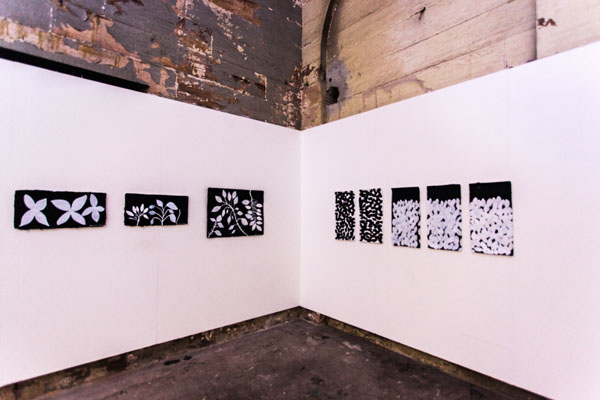
Curating Feminism
Curating Feminism, Sydney, 23 October to 26 October 2014.
A Contemporary Art and Feminism event comprising exhibition, masterclasses, conference and Wikithon.
Co-hosted by Sydney College of the Arts, School of Letters, Arts and Media, The Power Institute, University of Sydney and The Cross Art Projects.
How can curating be an activist practice, especially in the realm of gender?
What does it mean to be a feminist curator, or to adopt a feminist curatorial method?
How does an emphasis on process, collaboration and negotiation help us imagine feminist curating?
Keynotes
Michael Birchall: Activism & Art: for the de-proletarianised petty bourgeoisie
Public Lecture, 6 pm Thursday 23 October, SCA Galleries, Callan Park, Rozelle
Michael Birchall is a Berlin-based curator, writer and the co-publisher of On Curating (www.on-curating.org), a journal devoted to curatorial practice, published by Zurich University of the Arts (ZHdK), where he lectures in the postgraduate program in curating. Birchall is a recognised innovator in the field of activist curating, with particular interest in curating as social practice. He writes for contemporary art magazines such as Freize, Frieze d/e and C-Magazine.
Birchall will be critically analysing recent exhibitions and art practices that have responded to the protests and demonstrations that have recently taken place across North America and Europe, fundamentally as a resistance to neo-liberalism. Considering examples such as EVA International (2012), the 7th Berlin Biennial and Documenta 13 that reflect overt and covert political ideas, Birchall asks are these contributing to Hal Foster’s theory of the neo-avant-garde. Foster’s use of the term has entered a working alliance with the widespread rise of new forms of sociability and praxis in art since the mid-1990s. Beyond this, activism has begun to operate as a testing ground for various social interventions, transformative actions and participatory collaborations, both in and outside of institutions.
Dr Maura Reilly: Curatorial Activism: Towards an Ethics of Curating:
Power Lecture, 6pm Friday 24 October, Domain Theatre, Art Gallery of New South Wales. Bookings essential.
Dr Maura Reilly, founding curator of Elizabeth Sackler Centre for feminist art at Brooklyn Museum, NY, and co-curator with iconic feminist art historian Linda Nochlin of Global Feminisms, major international exhibition of feminist contemporary art at Brooklyn Museum 2007.
Dr Reilly will be speaking on curatorial activism, a term she has coined to describe the practice of organising art exhibitions with the principal aim of ensuring that large constituencies of people are no longer ghettoised or excluded from the master narratives of art. It is a practice that commits itself to counter-hegemonic initiatives that give voice to those who have been historically silenced and, as such, focuses largely on work produced by women, artists of colour, non-Europeans and/or queer artists. In her keynote, Dr Reilly examines current art world statistics with a careful eye toward sex-race ratios, and posits several strategies that might be employed by activists to address these disparities. She will make reference to the upcoming exhibition at the Art Gallery of NSW, Pop to Popism, where one of the curatorial objectives has been redressing the gender imbalance in the canon. Her lecture includes a conversation with Linda Nochlin where the two analyse developments in curating feminism since Nochlin’s famous 1971 call to arms. Dr Reilly’s lecture is sponsored by the Power Institute, Sydney College of the Arts, and School of Letters, Arts and Media, University of Sydney.
Exhibition: Curating Feminism
23 October to 8 November 2014. Opening 23 October, Sydney College of the Arts Galleries.
Opened by Verity Firth, CEO of the Public Education Foundation and former State Minister for Women, Education and Training, and the Environment.
The curators, in choosing and then working with the artists, were asked to explore the following questions and attempt to develop strategies that bring fresh insights into these pressing issues: What might curatorial activism look like, especially in the realm of gender? What does it mean to be a feminist curator, or to adopt a feminist curatorial method? ‘Curating Feminism’ addresses ideas around the ethics of collaboration between artist and curator to facilitate the logistics of the laboratory-style approach. It adopts the curatorial model of one curator, one artist/artist collective as a deliberate strategy to decentralise the curatorial process. It includes a long installation period to give the curators and artists the rare chance to work in the galleries as a process space, and to explore ideas of activism/feminism in the making/curatorial process as much as in the finished work. ‘Curating Feminism’ envisages the gallery as a creative space for discussion, interaction and activism.
Alice Lang Originals (2014)
Curators: artists
Co-ordinating Curator: Jacqueline Millner
Kelly Doley (Syd): Hissy Fit
Elvis Richardson/Virginia Fraser (Melb): The Countess Project
Laura Castagnini (Melb/London): Alice Lang
Euraba Papermakers
Brigid Noone (Adelaide): Soda_Jerk
Jacqueline Millner (Syd): Philipa Veitch
Jo Holder (Syd)/Alana Hunt (Warmun): Shirley Purdie, Alana Hunt and others
Euraba Papermakers with Debra Dawes, SCA Gallery, 2014.
Installation photo Isobel Markus-Dunworth.
Adrienne Duncan (left) and Leonie Binge (right): ‘Eura leaf’, 2014, acrylic on Euraba handmade cotton rag paper. Sydney College of the Arts Gallery. Photo Isobel Markus-Dunworth.
Euraba Papermakers ‘Eura Leaves’ with Debra Dawes ‘Cover Up’ collaborative installation, SCA Gallery, 2014.
Euraba Papermakers ‘Eura leaf’, acrylic on Euraba handmade cotton rag paper; Debra Dawes ‘Cover Up’, 1020 x 550 cm, 2014. Sydney College of the Arts Gallery.
Detail: Debra Dawes ‘Cover Up’, SCA gallery. Photo Isobel Markus-Dunworth.
The Story of Euraba is distinctive. It was founded in 1999 by nine senior Goomeroi women from the communities of Toomelah and Boggabilla in north-western NSW. Papermaking has connections to traditional culture in the process of collecting and being together to make useful things, for example here is an installation based on the medicinal Eura leaf. The Euraba philosophy is healing by showing the way, leading by example and walking alongside. Euraba Papermakers sometimes select collaborators for workshop projects with Judy Watson and Debra Dawes proposed for Contemporary Art and Feminism in 2015. Notes from an interview with founders May Hinch, Gloria Woodbridge, Joy Duncan, Marlene Hinch and Adrienne (Adi) Duncan at Boggabilla by Kate Ford (3 October 2014). Questions from CAF. Photo Isobel Markus-Dunworth.
Curating Masterclasses
Friday 24 October at SCA. Each limited to 15-20 participants with priority to students undertaking Masters in Art, Curating or Museum Studies.
1) Maura Reilly: Feminist Killjoy or Happy Humanist?
This masterclass will address some pressing issues within the context of contemporary art and feminism, especially as it relates to the practice of curating—including, but not limited to: What could equality in the art world look like? How important are quotas and statistics? ‘Is adding women to art history the same as producing feminist art history’ (to quote Griselda Pollock)? How far have we come since Nochlin’s 1971 essay, ‘Why Have There Been No Great Women Artists’? Are restrictive paradigms (like the art historical canon) still sufficient tool vis-à-vis today’s contemporary art? If not, what are the alternatives?
2) Michael Birchall: Curating in times of crisis: immaterial labour and the rise of the entrepreneur
Since the economic crisis of 2008, the way we operate in the global art world has changed significantly. Curators now produce an ever-increasing amount of content, far beyond the exhibition format, to include projects, publications, screenings, fundraising events, symposia and more. The current crisis continues to affect not only curatorial and artistic but all forms of labour. Can curatorial labour be subverted, altered or challenged? This masterclass will offer artists and curators an opportunity to present their own projects and discuss models for working in times of crisis, by adopting alternative curatorial strategies, and perhaps moving towards an entrepreneurial model against the neoliberal state.
3) Tess Allas: Director of Indigenous programs, UNSW: ‘Girl genius’: redressing gender imbalance
Most Australian Art schools attract more female than male students and the representation of women in course syllabuses and the representation of women in the gallery system once students graduate is reversed. There is a distinct lack of critical engagement of women artists throughout history and in the contemporary art discourse in the media, in arts reviews, in scholarly texts and in ‘in-class’ discussions. We would like to present an open discussion with participants to tease out some of the reasons behind these blatant gender imbalance issues that could help feed into our future exhibition and discussion panel idea of ‘Girl Genius’.
Download more information on participating in the Masterclasses here: masterclass invitation letter
Conference: Curating Feminism
10am-4pm Saturday 25 October, SCA auditorium
Panel 1) Curating feminism: Speaking to the exhibition:
Chair: Catriona Moore, Art History and Film Studies, University of Sydney; Courtney Pedersen and LEVEL, Directors of LEVEL Brisbane; Kelly Doley, artist/curator; Elvis Richardson and Virginia Fraser, artist/curator; Brigid Noone, curator.
Panel 2) Curating public space:
Chair: Jacqueline Millner, Sydney College of the Arts, University of Sydney; Bianca Hester, artist; Jo Holder, Director Cross Arts Projects; Sophia Kouyoumdjian, Director Parramatta Artists Studio; Gillian Fuller, DAAO on CAF online curatorial spaces.
Panel 3) Curating regionalism:
Chair: Jo Holder, Director Cross Arts Projects; Beth Jackson, Bimblebox, Far North Queensland; Meryl Ryan, Lake Macquarie Regional Gallery, NSW; Jasmin Stephens, freelance curator.





